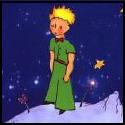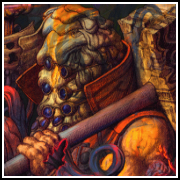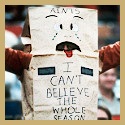|
Mr. Squishy posted:One of the things I like about Underworld's opening is how he locates all of the film-stars. Can you elaborate on why you like this and what you think DeLillo is saying? It's a good point for discussion about what it means both for the book and for "postmodernism in general." When I first made this thread it was because I liked the authors that were lumped into the category of "Postmodern." Now I've learned a bit more about it this semester. from History and Theory of Rhetoric by James Herrick: Postmodernism is a reaction to the intellectual values and philosophical goals of the European Enlightenment of the eighteenth and early nineteenth centuries. During this period reason was elevated as our best hope of solving ancient human problems and creating a rational society. [...] The nineteenth-century philosopher Friedrich Nietzsche had already begun to question Enlightenment assumptions, and thus provided the seeds of a new or "postmodern" system of thought. [...] Postmodern thought questions both reason and progress, and rejects what Jean-Francois Lyotard termed, in his seminal work The Postmodern Condition, "meta-narratives," those grand explanatory schemes such as Christianity or capitalism that claim to account for the entirety of human history and the human condition. Postmodernism rejected even the notion of the autonomous subject or "self" as a sociolinguistic construction. In other words, Postmodernism challenged the very foundations of Western philosophy. [...] Lyotard suggested that "to enter the postmodern era... we must overcome our Enlightenment legacy by abandoning the quest for truth." [...] It is also the case that Lyotard found language to constitute the worlds we inhabit, not fixed and eternal realities. And, the possibilities in language for creating realities were numerous. blue squares fucked around with this message at 19:10 on Dec 7, 2014 |
|
|
|

|
| # ? Apr 19, 2024 18:56 |
|
Earwicker posted:There are a lot of much worse books out there than House of Leaves and parts of it are decently entertaining, but the writing is indeed bad and really the whole thing is just Borges fanfiction. Which I guess is somewhat unique. All literature is fanfiction, though. Shakespeare is Holinshed fanfiction. Cormac McCarthy is Faulkner fanfiction.
|
|
|
|
Falstaff Infection posted:All literature is fanfiction, though. Shakespeare is Holinshed fanfiction. Cormac McCarthy is Faulkner fanfiction. This is stupid and so is the assertion that House of Leaves is Borges fanfiction. I'm not commenting on the quality of the work but trying to discount artistic influences as just "fanfiction" is so silly.
|
|
|
|
blue squares posted:This is stupid and so is the assertion that House of Leaves is Borges fanfiction. I'm not commenting on the quality of the work but trying to discount artistic influences as just "fanfiction" is so silly. I'm not discounting artistic influences though. House of Leaves was certainly inspired by Borges (which is what I understood "fanfiction" to mean in this context), as were thousands of other works. My point was pretty much the same as yours-- just because one work is heavily influenced by another is no reason to dismiss it, because all art is a result of its creators' influences. Of course, some works are more or less derivative than others, but while there are certainly problems with House of Leaves, I wouldn't say that being too derivative of Borges is one of them.
|
|
|
|
blue squares posted:This is stupid and so is the assertion that House of Leaves is Borges fanfiction. I'm not commenting on the quality of the work but trying to discount artistic influences as just "fanfiction" is so silly. That was probably a dumb way to put it, I admit. But it seemed conceptually more derivative to me than something just "influenced" by Borges, and the prose itself was often pretty bad. Shakespeare is of course extremely derivative as well and borrowed entire plots and concepts wholesale from other sources. But the difference is that he is a very good, clever, and entertaining writer. Danielewski is not. It doesn't matter that the plot of a typical Shakespeare play is predictable and pretty much already known at the outset, or that it often relies so heavily on established stories and concepts, because the appeal of his work IMO is the language itself. With House of Leaves, all it really has going for it is the concept, so when that part of it is also very derivative, its just kind of not great. But like I said before, parts of it are entertaining and theres certainly much worse out there. Earwicker fucked around with this message at 23:23 on Dec 7, 2014 |
|
|
|
Earwicker posted:
Haha yeah, I'm not gonna sit here and try to argue that Danielewski, a reasonably talented pop-lit writer, is on par with Shakespeare, the greatest poet and playwright in the English language. And I take your point about how execution is the most important element-- that even something super derivative can be good if it's done well. I guess I just disagree with you about Danielewski's prose, except maybe the Johnny Truant sections, which can get fairly unbearable.
|
|
|
|
blue squares posted:Postmodern thought questions both reason and progress, and rejects what Jean-Francois Lyotard termed, in his seminal work The Postmodern Condition, "meta-narratives," those grand explanatory schemes such as Christianity or capitalism that claim to account for the entirety of human history and the human condition. Postmodernism rejected even the notion of the autonomous subject or "self" as a sociolinguistic construction. In other words, Postmodernism challenged the very foundations of Western philosophy. Yeah, one of the problems I have with the employment of postmodernist critical theory is that it allows one to just crawl up their own rear end rhetorically, like a stoner who answers everything with "but what if that was just like, a construct, maan". And Noam Chomsky agrees with me, so that's that I really like postmodern stories and art, though 
|
|
|
|
I've got no idea what you are talking about when you say postmodern critical theory? Isn't all of it postmodern as it is read and practiced, or you divide critical theory into specific periods?
|
|
|
|
Boatswain posted:I've got no idea what you are talking about when you say postmodern critical theory? Isn't all of it postmodern as it is read and practiced, or you divide critical theory into specific periods? I'm commenting more on the academic side of postmodernism, which isn't entirely separable from pomo lit since it's often academics who write about it. It's kind of a derail though, so maybe never mind.
|
|
|
Lutha Mahtin posted:I'm commenting more on the academic side of postmodernism, which isn't entirely separable from pomo lit since it's often academics who write about it. It's kind of a derail though, so maybe never mind. Have you ever read this book? I recommend it. I got interested because as a "hard scientist" our impressions of post modernism comes from things like the Alan Sokol affair, but my wife's legal theory made good use of Foucault and Derrida's work so I wanted a better idea what it was actually about. It gives a pretty interesting perspective on how French Theory spread in the US
|
|
|
|
|
One of the things about DFW that's always interested me is the fact that he didn't consider himself a postmodernist. He admits to being inspired by / drawn to the writing of postmodernists (as I recall, he specifically mentioned Pynchon, DeLillo, and Barthelme), but claimed that postmodernism had "run its course." Because of this, I find it kind of difficult to categorize his writing in a way that's actually useful. His style definitely has postmodern elements and influences, but the actual content is pretty divergent. Where postmodernism is usually associated with irony and the reappraisal of traditional values, DFW isn't afraid to be sincere, to say that sometimes those pat AA posters are right. Like, DFW says this about the irony: quote:Anyone with the heretical gall to ask an ironist what he actually stands for ends up looking like an hysteric or a prig. And herein lies the oppressiveness of institutionalized irony, the too-successful rebel: the ability to interdict the question without attending to its subject is, when exercised, tyranny. It [uses] the very tool that exposed its enemy to insulate itself. Which, to me, feels at least partially like a critique of postmodernism itself. A lot of DFW's writing seems to share more in common with modernists than postmodernists, and then you have the whole issue of trying to pin down what, exactly, post-postmodernism even means, beyond "a response to postmodernism." I'm curious to hear what others have to think about it.
|
|
|
|
I'm about the dive into DeLillo full force this year. I plan on reading Underworld, White Noise, Cosmopolis, and Great Jones Street. Should I really know anything about any of them or his writing style and is there any order I should read them in? This is going to be my first time really sitting down and reading him.
|
|
|
|
screenwritersblues posted:I'm about the dive into DeLillo full force this year. I plan on reading Underworld, White Noise, Cosmopolis, and Great Jones Street. Should I really know anything about any of them or his writing style and is there any order I should read them in? This is going to be my first time really sitting down and reading him. Underworld is incredible, but you may not want it to be your first experience with DeLillo. Great Jones Street will give you an idea of his style without the massive time commitment that comes with Underworld. White Noise is fine, but it's actually my least favorite DeLillo book. Libra would also be a good place to start, but I'm not sure if you're looking to expand that reading list or not. While I'm here, I just finished J R (William Gaddis) two days ago. I absolutely loved A Frolic of His Own but I didn't like J R very much. Other than the scenes with J R himself, I found the book to be a dull slog. Anyone here care to defend it?
|
|
|
|
Hi bread. I love this pomo poo poo so much that I dropped by. Love DFW, Pynchon, and so on. "Agape Agape" is my favorite novel of all time. I think that Robert Coover is phenomenally underrated, but John Barth is THE most underrated writer of all time. Guy is a thousand years old, started before all these other guys, and still had published a few killer tomes in just the last few years - wow! He's so good! Also, JOHN HAWKES, drat! One of my absolute favorite guys ever. Full head explosion every time I make it through a page of his. Guy wrote just pure nightmare Guy Maddin/David Lynch concepts in what almost reads like poetry translated by babelfish to another language and back to English, but it's GREAT. Pure elemental imagery throughout too. Purest beauty, but insane. A horse pees on a child!
|
|
|
|
Transistor Rhythm posted:Hi bread. I love this pomo poo poo so much that I dropped by. Love DFW, Pynchon, and so on. "Agape Agape" is my favorite novel of all time. I think that Robert Coover is phenomenally underrated, but John Barth is THE most underrated writer of all time. Guy is a thousand years old, started before all these other guys, and still had published a few killer tomes in just the last few years - wow! He's so good! Mate are you alright?
|
|
|
|
I just saw that my phone went pomo by autocorrecting "thread" to "bread."
|
|
|
|
Post Modernism is an umbrella term used to cover a lot of aspects of 20th century culture and philosophy/theory. In a cultural sense it's basically everywhere: every commercial ironically scoring some campy enactment of a humdrum event with a piece of Serious Classical Music only to break the fourth wall and come clean with you at the end - hey, we both know this is a commercial, you're smart enough to figure that out, you're in on the joke, and so are we, so buy our product lol this whole thing is so crass right? - is a reminder that this style has found its way into almost everything at this point. But focusing strictly on literature it could be referred to as modern experimental fiction for the sake of clarity. Generally speaking it's literature that is obsessed with its own form, style, limitations, mimesis, epistemology, and self-awareness. It acknowledges its synthetic nature in order to draw the reader's attention to the act of reading and how one is understanding the information on the page rather than to any particular story or character. Vonnegut and PK Dick have come up a bit in this thread and, while they're not not under the purview of this topic, they're also not strong examples. Vonnegut was largely a conventional sci-fi satirist who used some pomo trappings for humorous or amusing effects, and has more in common with Swift or Twain than he does with Gaddis or Pynchon. PKD wrote about what might be called post modern societies - corporate states, virtual worlds, rampant undisguised neoliberalism - but his writing is simplistic, very pulpy, and in the service of telling the story above all else. Some (short) books to start with: Ficciones - Jorge Luis Borges Invisible Cities - Italo Calvino The Crying of Lot 49 - Thomas Pynchon Pale Fire - Vladimir Nabokov The Loser - Thomas Bernhard Don't get too caught up on the label, think of it more like Wittgenstein's concept of a family resemblance than a coordinated movement.
|
|
|
|
Heliotropic posted:PKD wrote about what might be called post modern societies - corporate states, virtual worlds, rampant undisguised neoliberalism - but his writing is simplistic, very pulpy, and in the service of telling the story above all else. I actually just finished A Scanner Darkly yesterday after reading Ubik a year ago and came in to leave a note on PKD. I liked A Scanner Darkly in particular for it's straight forward view on drug culture and what it's like being on the bottom rung, and is pretty accurate in that regard. The plot itself is straight forward but the way he navigates loss or overwritten identity in the framework of a detective story is pretty well done, especially in it's arcs of Robert Arctor playing at being a narc named Fred, losing scope and being JUST Fred, to losing it all and becoming a non-entity in a rehab clinic named Bruce. Not the highest art but very entertaining and works well as a companion book. Also, I like the fact that PKD didn't feel comfortable writing a straightforward autobiography on his younger days, so his publisher helped put the sci-fi elements in to make it more his fare. Go figure.
|
|
|
|
If you liked A Scanner Darkly you will love VALIS.
|
|
|
|
Just got through Falling Man by Donny Dee. Holy poo poo I loved it, although the Goodreads reviews make me think I might be the only one.
|
|
|
|
Heliotropic posted:Generally speaking it's literature that is obsessed with its own form, style, limitations, mimesis, epistemology, and self-awareness. It acknowledges its synthetic nature in order to draw the reader's attention to the act of reading and how one is understanding the information on the page rather than to any particular story or character. That's it! Cheers mate, that's the definition I've been trying to recollect. I wrote an essay on postmodern literature at uni and I couldn't even recall exactly what it is!
|
|
|
|
I'm not sure if it's technically post modern literature, or simply literature inspired by Nabokov, but Lunar Park by Bret Easton Ellis was far better than it had any right being.
|
|
|
|
I've felt the sinister urge to read another Pynchon novel after finishing Gravity's Rainbow earlier this year. I've started reading Vineland, which is Pynchon-lite, as far as I understand. The tone of the book, so far, is oddly sentimental. Zoyd is a single father who lives off of government checks for acting crazy and jumping through windows annually, an act he doesn't seem proud of. His daughter is in that weird teenage phase where she's old enough to date a punk-rocker who's obsessed with violence, but she still looks at her dad with the hero glasses on. There's a father-daughter bonding moment as they watch television together, and there's already been a noticeable amount of references to movies and TV shows in dialogue. It's considered Pynchon's weakest book by many, and I've barely scraped the surface, but I like it.
|
|
|
|
Grizzled Patriarch posted:One of the things about DFW that's always interested me is the fact that he didn't consider himself a postmodernist. He admits to being inspired by / drawn to the writing of postmodernists (as I recall, he specifically mentioned Pynchon, DeLillo, and Barthelme), but claimed that postmodernism had "run its course." DFW is New Sincerity
|
|
|
|
That also reminds me, has anyone heard about the new movie about DFW with Jesse Eisenberg and Jason Segel? Segel plays DFW, and I'm intrigued.
|
|
|
|
Franchescanado posted:That also reminds me, has anyone heard about the new movie about DFW with Jesse Eisenberg and Jason Segel? Segel plays DFW, and I'm intrigued. My GF is super excited to see it, she's a huge DFW fan. I saw the preview when I saw Amy the other day, it looked pretty good.
|
|
|
|
Franchescanado posted:I've felt the sinister urge to read another Pynchon novel after finishing Gravity's Rainbow earlier this year. I've started reading Vineland, which is Pynchon-lite, as far as I understand. Vineland starts out fine but doesn't really go anywhere. I think that this book and V are Pynchon's weakest. Even his more recent "Pynchon Lite" books like Inherent Vice and Bleeding Edge have more meat to them (in addition to being more enjoyable reading experiences).
|
|
|
|
Help needed, postmodern thread. I'm well on my way to finishing the whole bibliography (well all the novels) of Gaddis this year but ran into a bit of snag with Recognitions. Namely, the copy I'm reading has a torn page, as you can see below. http://imgur.com/WEhnOU0 I'm asking if some kind person in possession of an unravaged copy could scan pages 857 and 858 for me. I tried to find some previews or samples but could only find digital access to the beginning of the novel. So hook a reader up, please.
|
|
|
|
Sure http://i.imgur.com/tJyY2Mc.jpg http://i.imgur.com/5XEXiDk.jpg
|
|
|
|
Mr. Squishy posted:Sure Thanks a bunch. Now just the final stretch of Recognitions and (the unfinished mess of?) Agapē Agape and I'm done with Gaddis. Well, done reading him, for now. It's been an absolute blast reading all his stuff back to back, although not in chronological order. Still it's interesting to see how his unique style evolved from Recognitions to JR to Frolic. I recommend everyone interested in pomo lit or just interesting and distinct voices to read at least A Frolic of His Own and JR. I think I may have to switch my favourite author from Nabokov (or Wallace, I guess) to Gaddis.
|
|
|
|
Mr. Squishy you just missed a golden opportunity to convince Jerome that Gaddis was doing a one-off pomo gag with an intentionally ripped page.
|
|
|
|
I can't think of another author less likely to have truck with unbound books, etc. I can hear him turning in his grave when I get mucky fingerprints on his books. AA isn't noticeably unfinished, it's just very short, and even more indebted to Bernhard than the previous few. I'd recommend picking up The Rush for Second Place, a small collection of his other writing. There's a few gems in there, like JR Up to Date ([url=http://www.williamgaddis.org/nonfiction/jrgoes.shtml]available online, with added punctuation thanks to the New Yorker's editors) and a biographical piece, and a great essay on Butler's Erewhon. There's also a condensation of his university course which is the densest bit of writing, and an essay on Dostoyevsky's Devils that is manages to be entirely about Gaddis' own bad reviews. And of course a lot of Player Piano stuff. There's a book of his letters too, which is good but feels utterly opposed to the spirit of the man.
|
|
|
|
^^^^^ E: Any recommendations where to start with Bernhard (in English (or Finnish))? Actually there was a fleeting moment I almost thought that maybe, just maybe the tear was intentional. Especially because I hadn't read that far when I noticed it. And I've read JR up to date (was fun) and I have the Atlantic Books Agape with included "other writings" that include Rush for 2nd Place and speeches and reviews and whole lot of whatnot. Jerome Agricola fucked around with this message at 15:50 on Oct 18, 2015 |
|
|
|
I've yet to read any Gaddis. I'm not currently reading any fiction and have been feeling the need to get a novel going. I always thought it would be better to start with Recognitions but JR, from what I hear, is the better read.
|
|
|
|
blue squares posted:I've yet to read any Gaddis. I'm not currently reading any fiction and have been feeling the need to get a novel going. I always thought it would be better to start with Recognitions but JR, from what I hear, is the better read. I'd recommend to definitely start with JR or Frolic. I think they are the two most fun novels of his. Unless you really want to see his style evolve before your eyes.
|
|
|
|
Jerome Agricola posted:^^^^^ E: Any recommendations where to start with Bernhard (in English (or Finnish))? I think The Loser is meant to be his best thing but I haven't read it myself
|
|
|
|
My fave is The Recognitions where he was still a little interested in, uh, plot. Are you more personally interested in God or taxes? Recognitions was the only one where he was bothered with something like a soul, the next 4 religion is just a fearsome right-wing scam. Ya, The Loser is good, a guy went to school with Glen Gould then sold his piano. Concrete also gets mentioned a lot, not read it. There's also one where someone built for his sister a cone-shaped house in the middle of the woods and he keeps on saying "the cone, the cone, the cone, the cone". Correction, that's it. All of his novels are a 100-page paragraph, so read 8, why not.
|
|
|
|
I've only read Holzfällen, but it owns and is worth checking out, I guess. It also felt incredibly on-point in certain places
|
|
|
|
blue squares posted:Mr. Squishy you just missed a golden opportunity to convince Jerome that Gaddis was doing a one-off pomo gag with an intentionally ripped page. That's more of a B. S. Johnson thing.
|
|
|
|

|
| # ? Apr 19, 2024 18:56 |
|
Does anyone mind scanning a few pages from Tristram Shandy? My second hand copy... the guy must have splashed all kind of crazy inks on the page! Some people are so careless.
|
|
|





























